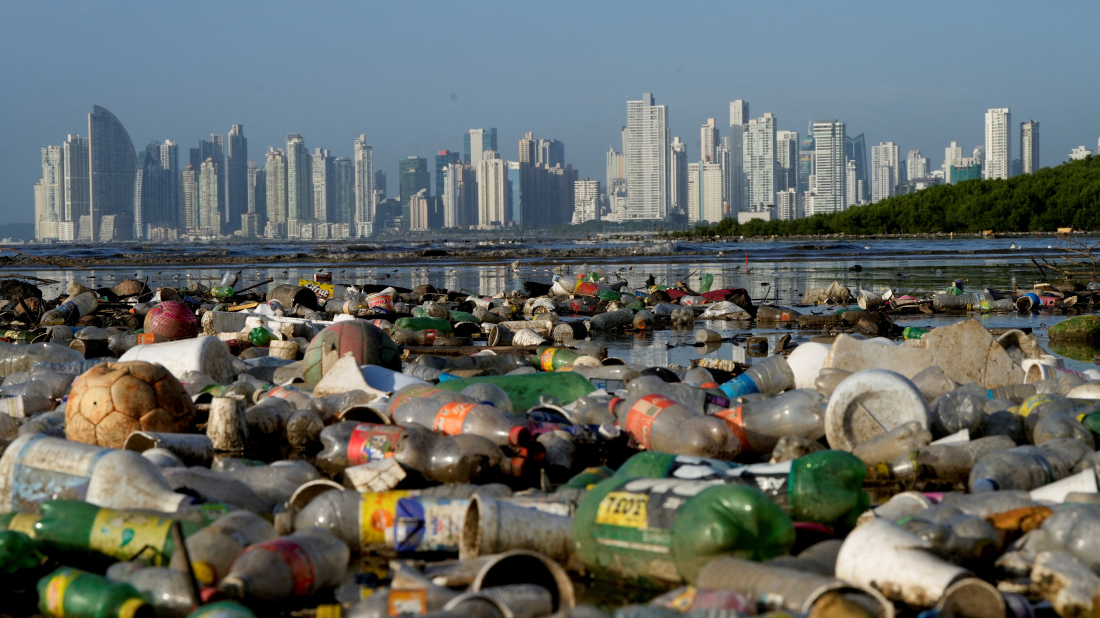U.S. expands regional military presence amid ongoing Iran talks
United States prepares for the possibility of sustained, weeks-long military operations against Iran, two U.S. officials told Reuters as the images of...

Talks on a global treaty to reduce plastic pollution risk falling apart as countries remain divided over how to limit plastic production.
More than 1,000 delegates from around the world gathered in Geneva this week for the sixth, and possibly final, round of negotiations on a UN-led plastics treaty. The goal is to agree on global rules to fight plastic pollution, but officials say talks have stalled due to sharp differences.
Some oil-producing nations, including Saudi Arabia and Russia, are pushing for a weaker deal without limits on the production of virgin plastics. Instead, they support voluntary national actions. Delegates told Reuters this opposition is threatening progress toward a binding agreement that tackles the root cause of plastic pollution.
The United States, while officially supporting the talks, seeks to limit the treaty’s scope to downstream issues like waste disposal, recycling and product design. A source familiar with the negotiations said the U.S. delegation wants to avoid “burdensome restrictions” on producers that could affect American companies.
The talks come as the Trump administration continues to roll back environmental policies, including a longstanding finding that greenhouse gas emissions endanger public health.
Diplomats and climate advocates warn that efforts by the European Union and small island states to cap virgin plastic production — fuelled by petroleum, coal and gas — are under pressure from petrochemical-producing countries and the U.S. delegation.
Delegates say this could result in a treaty that lacks strong, binding rules and instead focuses mainly on recycling and waste disposal. Environmental groups warn that this approach would not be enough to address the root of the problem.
One of the main points of debate is whether to cap plastic production. Other key issues include how to manage toxic chemicals in plastics and how to fund clean-up efforts in developing countries.
Small island nations, heavily affected by plastic waste, are calling for dedicated financial support. Ilana Seid, a representative from Palau, said this could be the “last best chance” to reach a meaningful agreement.
“Plastic production is set to triple by 2060 without intervention,” said Seid, citing OECD data. “As pollution grows, it deepens the burden for those who are least responsible and least able to adapt.”
Small island states say plastic waste washing ashore threatens their tourism and fishing economies and want urgent funding to clean up existing pollution.
Scientists are also concerned about health risks. Dr. Melanie Bergmann from the Alfred Wegener Institute noted that plastics contain over 16,000 chemicals, many of which are hazardous to humans.
Andres Del Castillo, senior attorney at the Center for International Environmental Law (CIEL), said oil states have even been “questioning basic facts about the harm to health caused by plastics.” He added, “We are in a moment of revisionism, where even science is highly politicised.”
Industry voices are present too. A coalition of 300 companies, including food giant Nestlé, supports the treaty and wants global packaging rules to be unified to cut costs.
Some delegates have suggested that if a global deal cannot be reached, a smaller group of willing nations could move ahead with their own agreement. However, the head of the UN Environment Programme, Inger Andersen, stressed the need for unity.
“We’re not here to get something meaningless,” Andersen said. “You would want something that is effective, that has everybody inside, and therefore everybody committed to it.”
U.S. Ambassador to NATO Matthew Whitaker said China has the power to bring an end to Russia’s war in Ukraine, arguing that Beijing is enabling Moscow’s military campaign.
American figure skating star Ilia Malinin endured a dramatic collapse in the men’s free skate on Friday night, falling twice and tumbling out of medal contention at the Milan Cortina Winter Olympics as Kazakhstan’s Mikhail Shaidorov surged to a surprise gold medal.
“Respected and feared globally,” U.S. President Donald Trump told troops at Fort Bragg on Friday (13 February), framing America’s renewed strength against to mounting pressure on Iran amid stalled nuclear talks.
Speaking at Munich Security Conference, Ukrainian foreign minister Andrii Sybiha calls for decisive steps ahead of expected Geneva talks
Thousands of fans packed River Plate’s Monumental Stadium in Buenos Aires on Friday for the first of three sold-out concerts by Puerto Rican reggaeton star Bad Bunny, as part of his “Debí Tirar Más Fotos” World Tour.
United States prepares for the possibility of sustained, weeks-long military operations against Iran, two U.S. officials told Reuters as the images of the USS Abraham Lincoln carrier strike group sailing and flying in formation were released on Sunday.
The Somali Army carried out a targeted airstrike in southern Somalia, killing 15 al-Shabaab militants, the country’s Defence Ministry said on Sunday.
U.S. Secretary of State Marco Rubio on Sunday (15 February) called it “troubling” a report by five European allies blaming Russia for killing late Kremlin critic Alexei Navalny using a toxin from poison dart frogs.
Former U.S. President Barack Obama has criticised a video shared by President Donald Trump depicting him and former first lady Michelle Obama as apes, describing it as “deeply troubling”.
U.S. Secretary of State Marco Rubio will begin a two-day visit to Slovakia and Hungary on Sunday (15 February), aimed at strengthening ties with the two Central European nations, whose leaders have maintained close relations with President Donald Trump.
You can download the AnewZ application from Play Store and the App Store.

What is your opinion on this topic?
Leave the first comment